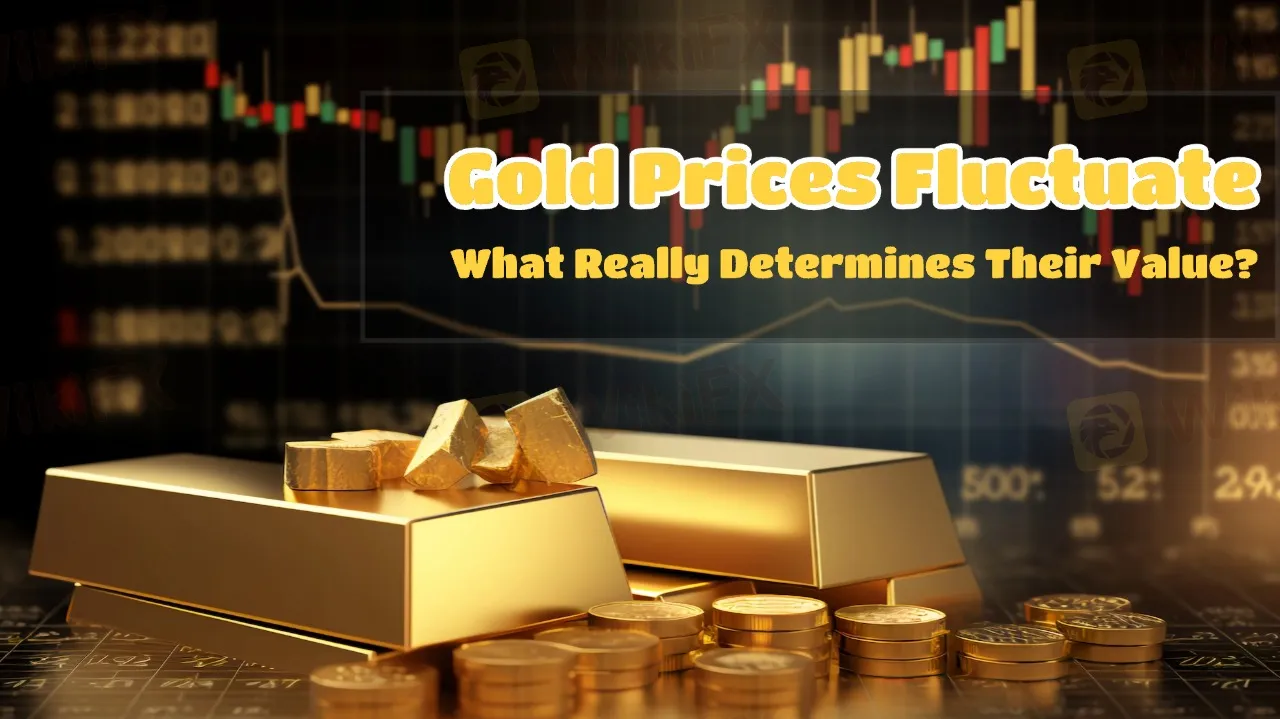简体中文
繁體中文
English
Pусский
日本語
ภาษาไทย
Tiếng Việt
Bahasa Indonesia
Español
हिन्दी
Filippiiniläinen
Français
Deutsch
Português
Türkçe
한국어
العربية
Gold Prices Fluctuate: What Really Determines Their Value?
Abstract:Gold prices have been fluctuating recently, influenced by multiple factors. Since the beginning of 2025, gold has risen by 11%, hitting new historic highs multiple times in the first quarter.

Global central banks continue to increase their gold reserves, while market expectations for Federal Reserve rate cuts have pushed gold prices higher. Meanwhile, there has been a divergence in the precious metals market, with silver, platinum, and palladium prices declining, while investors risk aversion is increasingly focused on gold.
Why are gold prices so volatile?
Gold prices are affected by a variety of factors, including Federal Reserve monetary policy, the movement of the dollar, and market risk aversion. Recently, Federal Reserve Chairman Jerome Powell acknowledged the uncertainty surrounding the economy but has refrained from quickly adjusting policies, which has increased expectations for rate cuts, causing the dollar index to drop.
Typically, a weaker dollar enhances gold's attractiveness. In addition, central banks around the world continue to buy gold to diversify risk from dollar assets, providing further support for gold prices. Meanwhile, ETF inflows have been rising, pushing gold holdings to the highest level in over a year, further boosting market sentiment.
Looking ahead, the gold market will still face many uncertainties. The extent of the Federal Reserve's rate cuts will directly affect gold price movements. If the cuts exceed expectations, gold prices could potentially break the $3,000 per ounce mark.
On the other hand, if the U.S. economys “transition period” leads to more significant market turmoil, risk aversion could further drive up gold prices. However, if economic data improves and expectations for rate cuts diminish, gold prices could face downward pressure.
As market volatility intensifies, investors should closely monitor global economic conditions and Federal Reserve monetary policy to adjust their asset allocations wisely, in order to navigate the continued fluctuations in the gold market.
Disclaimer:
The views in this article only represent the author's personal views, and do not constitute investment advice on this platform. This platform does not guarantee the accuracy, completeness and timeliness of the information in the article, and will not be liable for any loss caused by the use of or reliance on the information in the article.
Read more

TradeHall vs. HYCM: Which Broker Should You Choose?
When choosing a broker, understanding the difference between superficial features and real regulatory protection is essential. In this article, WikiFX will compare TradeHall and HYCM. While on the surface, both brokers offer a wide range of trading instruments, the real difference lies in their regulatory statuses, which is a commonly overlooked factor for traders when they opt for brokers.

Trade Nation vs. FBS: Which Broker Is Better for New Traders?
If you're new to trading, choosing the right broker can feel overwhelming. Two popular choices, Trade Nation and FBS, offer very different experiences. This comparison breaks down which is better suited for beginners, based on ease of use, safety, costs, and support.

Exness Acquires €75 Million Property in Cyprus for Future Growth
Exness, a leading forex trading broker, has purchased a €75 million property in Cyprus, securing 200,000 square meters for expansion, including potential employee housing or a new campus.

WikiFX’s Complimentary Protection Services Aim to Safeguard Investors' Legal Rights and Interests
Amid the increasingly complex forex market environment, WikiFX remains steadfast in its mission to provide global users with free, professional, and authentic forex rights protection support services.
WikiFX Broker
Latest News
Tether Freezes $12.3 Million in USDT Over Money Laundering Concerns
MiCA Unlocks EU Crypto Market, but National Tensions Rise as Gemini and Coinbase Near Approval
Retirement Dreams Shattered: Don't Do This To Yourself!
Philippines Sets Southeast Asia’s First Crypto Regulatory Framework
EU Regulators Imposed Over €71M in Sanctions in 2024, ESMA Calls for Enforcement Convergence
FortuixAgent Review 2025: Is it Scam or Legit?
Danske Bank expects the European Central Bank to make its final interest rate cut in September.
No Regulation, Revoked Licence: Is Tradehall Safe to Use?
FXGT.com Trading Platform Review 2025
ATTENTION! Red Alert on These Brokers !
Currency Calculator


